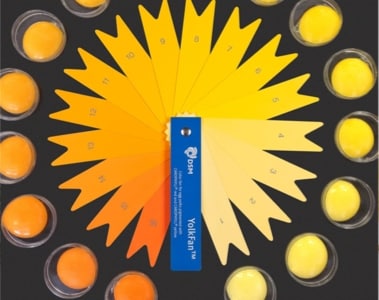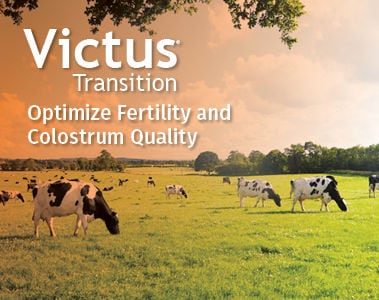Carotenoids are naturally occurring pigments found in plants that play a key role in optimizing cattle health and reproduction. Beta carotene is the most common type of carotene in plants and considered a provitamin A or a substance that the animal needs to produce vitamin A. It also serves as a powerful antioxidant to reduce the effects of oxidative stress that can negatively affect fertility and performance of dairy and beef cows.
When cattle are grazing forages that are green and growing or when feeding fresh green chop, beta carotene is often plentiful to meet the needs of the animal for optimal health and reproduction. However, when cattle are consuming diets consisting of predominately cereal grains and stored forages such as silages and haylages, beta carotene is often lacking. For instance, harvested forages for silages or hay can be highly variable in beta carotene concentration and through processing and storage can lead to 80% decrease in beta carotene levels.
Most supplement programs include Vitamin A to ensure animals receive adequate levels in their diet since relying on Vitamin A through conversion of beta carotene in feed sources can be variable due to stability during harvest and storage. However, a key point to recognize is the nutritional benefits for cattle to receive sufficient levels of beta carotene in the beta carotene form for optimal reproductive purposes.
More specifically, beta carotene serves an important role in protecting the corpus luteum and promotes the synthesis of the pregnancy hormone, progesterone, which supports stronger heats and greater success of implantation of the fertilized egg. In addition, an improvement in spermatogenesis in bulls, udder health and colostrum quality are other research supported benefits of ensuring adequate beta carotene levels in reproducing and young animals.
From a North America dsm-firmenich survey, majority of high yielding dairy cows tested for beta carotene blood plasma levels were considered highly deficiency and at the critical stage of follicle development.
Feed samples and blood serum can be analyzed for beta carotene concentration. Our dsm-firmenich team utilizes a BioAnalyt iCheck machine that can be used on farm for instant serum beta carotene analysis.
For more information on beta carotene and on-farm testing services, please contact a dsm-firmenich representative.


